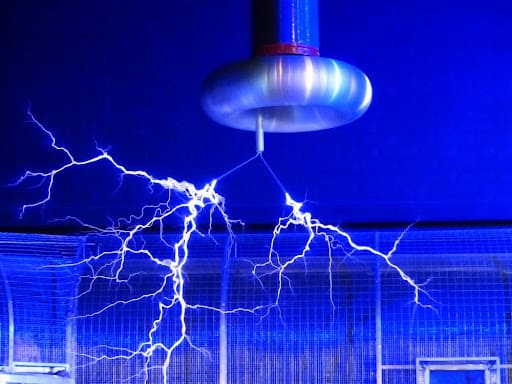
The IB DP changes its syllabus every few years, which is a normal practice to keep up with the dynamic world and to maintain relevance in contemporary society. So, what’s so different and exciting about the new IB Physics Syllabus (2023)? This blogpost will cover everything you’d need to know.
The New 2023 IB Physics Syllabus
Being the first batch that deals with a new syllabus, a different paper pattern, and little to no past paper practice can feel very unfair like lab rats feel for new product trials. But, look at the bright side – you get to be the first batch to explore the new IB Physics 2023 curriculum!
What Makes It More Exciting?
The new curriculum gives a more in-depth, hands-on approach to the subject. Especially for Physics, the syllabus has adopted a non-linear learning approach that aligns more with the modern world, and you’re all at the forefront for the same! If you think you’ve got it tough, ask the teachers who are going to teach you…
Someone who has incorporated a specific teaching method over the years would find it much more challenging to learn and understand new topic content and revamp their earlier teaching methods, so we’re all in this together!
The Changes
The topics are what have undergone a tremendous amount of change. If you look at last year’s syllabus, you’ll notice the myriad of topics that were present in both IB SL as well as HL. Looking at the latest handout, we have scrapped many of them, resulting in a much smaller, targeted set of components.
The Difference Between IB Physics Then and Now
External Assessment
Examining the previous paper patterns, you’ll notice that all the questions used to be MCQ-based or objective. However, students now attempt essay-based questions, relying on their independent learning and understanding. If you have appeared for the IGCSEs earlier, you may have come across a question type called the ‘ERR’ or Extended Response to Reading in the 0500 English Language paper. While the English subject focused on letters and journal entries for the ERRs, the IB Physics component wants you to write an extended response on any of the 3 concepts taught throughout the syllabus.
Internal Assessment
The individual assessment has seen a change in its assessment format. Students can now guide or help each other with common methodologies, but their data and findings should be unique to oneself. The students would still need to submit their 3000-word individual report. However, the criteria have changed to increase emphasis on the conclusion and evaluation to a 50% weightage of the total IA marks, thus encouraging higher-order thinking skills.
The Topics:
The curriculum is broadly divided into 5 subject areas:
- Space, time, and motion
- The particulate nature of matter
- Wave behavior
- Fields
- Nuclear and quantum physics
The detailed list is given on the IBDP Website:
• Topics with content that should be taught to all students
•• Topics with content that should be taught to all students plus additional HL content
••• Topics with content that should only be taught to HL students
Here’s the official IBDP Subject Brief for the complete list of topics: Sciences: Physics
It may appear to be challenging at first, but with the help of suitable teachers and tutors, this should be a successful and eventful year for IB Science! We have excellent Physics tutors at Young Scholarz who can help guide you with tailored 1:1 sessions. Don’t hesitate to contact us.
Take a look at our IB courses for further information.
You can also register at Young Scholarz here, and all the best for the new academic year!











